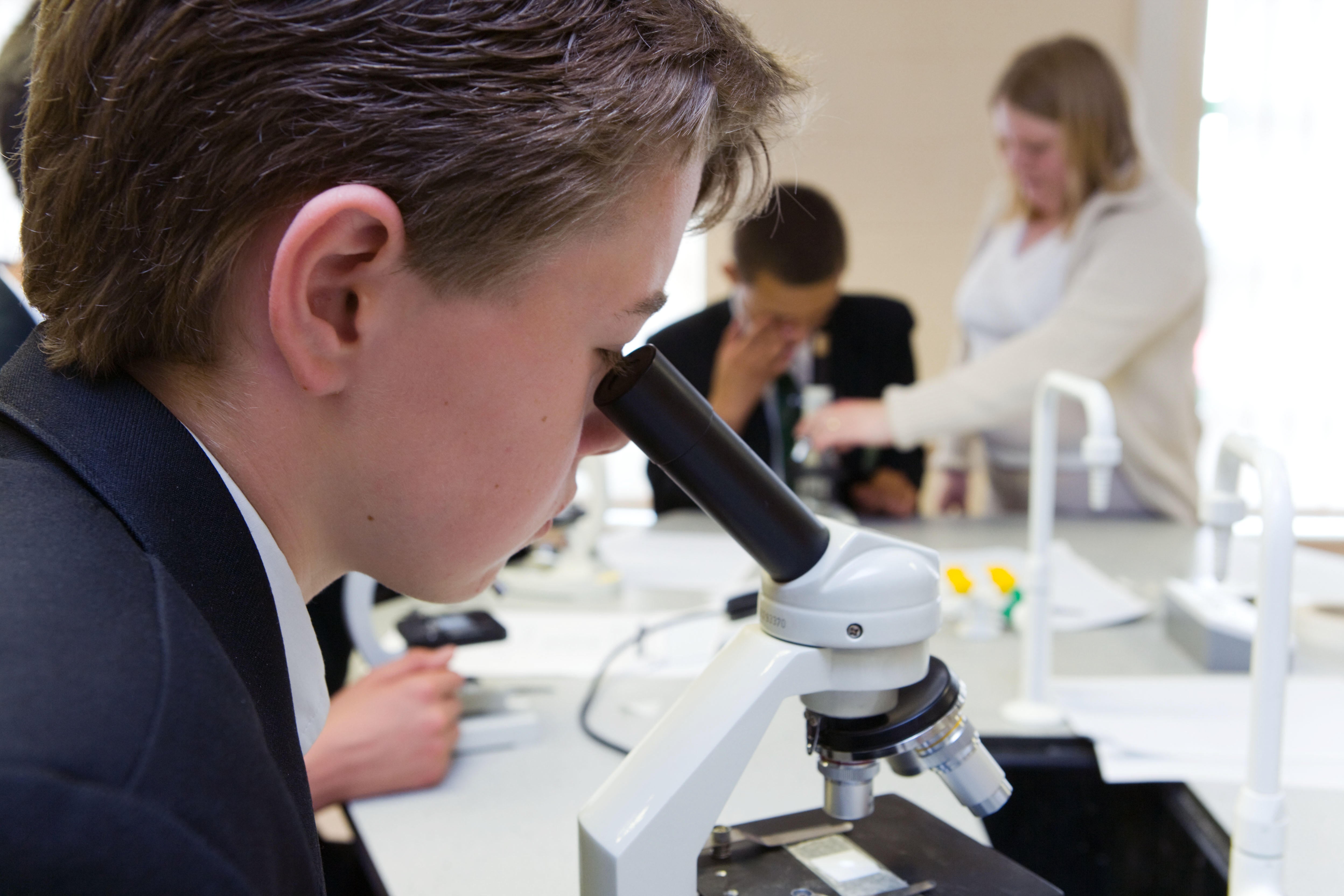Researchers call for update to GCSE science to improve vaccine understanding
A study by the University of Portsmouth found participants who studied science up to GCSE were more likely to be vaccine hesitant.

Your support helps us to tell the story
From reproductive rights to climate change to Big Tech, The Independent is on the ground when the story is developing. Whether it's investigating the financials of Elon Musk's pro-Trump PAC or producing our latest documentary, 'The A Word', which shines a light on the American women fighting for reproductive rights, we know how important it is to parse out the facts from the messaging.
At such a critical moment in US history, we need reporters on the ground. Your donation allows us to keep sending journalists to speak to both sides of the story.
The Independent is trusted by Americans across the entire political spectrum. And unlike many other quality news outlets, we choose not to lock Americans out of our reporting and analysis with paywalls. We believe quality journalism should be available to everyone, paid for by those who can afford it.
Your support makes all the difference.Researchers are calling for urgent changes to the GCSE science curriculum to help improve vaccine uptake and support learners in identifying misinformation.
A study by the University of Portsmouth found participants who studied science up to GCSE were more likely to be vaccine hesitant than those with either lower or higher science educational levels.
They believe this may be caused by people at this level overestimating their competence, leading them to reach wrong conclusions from their own research.
Those who have taken GCSE science exams might overestimate their competence in the field and ‘do their own research’, not always with the right results
Dr Alessandro Siani, of the School of Biological Sciences at the University of Portsmouth, said: “It is possible that participants who had not studied science at secondary school might recognise their lack of knowledge on the topic and tend to seek expert advice on vaccines from qualified personnel such has healthcare workers.
“However, those who have taken GCSE science exams might overestimate their competence in the field and ‘do their own research’, not always with the right results.”
The study of 400 people also found that those with primary or lower secondary science education were more likely to be concerned about the pandemic, unlike those who studied science at postgraduate level.
A higher concern with the Covid-19 pandemic was also associated with libertarian social views and left-wing economic views.
Dr Siani has called for the GCSE curriculum not only to be designed to teach students accurate and up-to-date scientific notions, but also to equip them with the tools to understand the scientific method, avoid misinformation and seek reliable, evidence-based scientific sources.
He said ensuring that topics of critical public health relevance were adequately covered in secondary school education could help improve scientific literacy and trust in vaccinations as well as in the healthcare workers who administer them.
He said: “A lack of trust in vaccines had already been identified as one of the top 10 threats to global health, even before the Covid-19 pandemic brought the subject of immunisation to the front page of worldwide news outlets.
“At a time when many countries are still under the grip of the Covid-19 pandemic and limited vaccine uptake is hindering the global efforts to overcome the current crisis, this study provides important insights into the factors underpinning vaccine confidence and pandemic concern.
“Considering that the majority of the population do not pursue further scientific studies after secondary education, the observation that participants who studied science up to GCSE level show the highest level of vaccine hesitancy should be a cause for concern.”